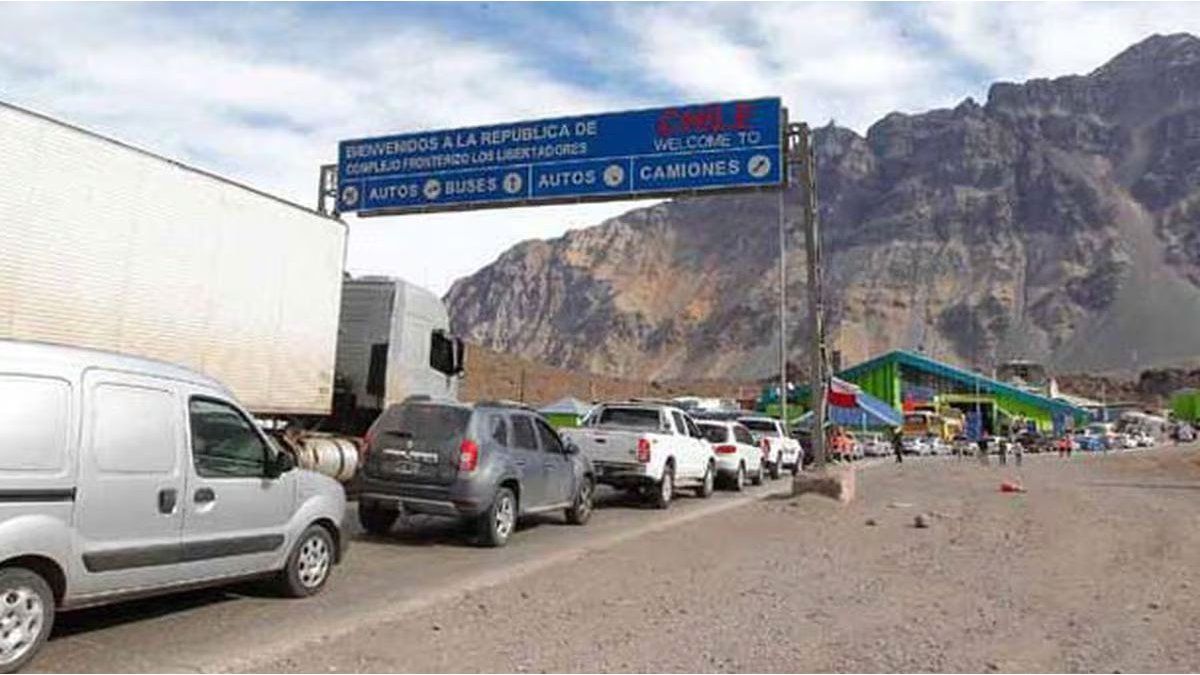As an effect of the exchange appreciation, shopping tours to Chile doubled. About 55 buses cross the Cristo Redentor pass daily, as confirmed by customs personnel to Ámbito. The difference in prices ranges from 30% to 70%, but the delay to cross the border can exceed ten hours. Buses from Córdoba, San Juan and Buenos Aires are already arriving. The phenomenon is beginning to generate complications in Mendoza businesses, which asked to redouble Customs controls. There is also concern about the role of the “bagayeros”, the “Persian” markets and a festival of counterfeit merchandise.
With the victory of Donald Trump, a stronger dollar is expected. Therefore, the currencies of emerging countries depreciate. This Monday the Mexican peso fell 1.7% and the Brazilian real fell 1.3%. Argentina goes against this phenomenon and maintains its exchange rate appreciation policy.
This phenomenon finds its most immediate reaction in the services. For the Central Bank, that account went from showing a surplus of US$84 million in January to having a surplus of US$650 million in September, despite the fact that the card dollar is $500 above financial dollars.
The long lines at the Cristo Redentor pass to cross from Mendoza to Chile became commonplace this year. “Shopping tours more than doubled compared to last year, we have about 55 buses per day crossing the border to buy everything,” customs personnel explained to Ámbito.
To the buses that usually left from Mendoza, others from San Juan, Córdoba and even Buenos Aires were added. In many cases the buses are full of “bagayeros”, people who are hired to bring merchandise that is then resold.
Everything enters the country, small appliances, cell phones, but mainly clothing with counterfeit brands. Mostly the items brought from Chile end up at the “Persians”, Mendoza markets similar to those that can be found on the “La Salada” property.
Why the blue dollar is cheaper than the official one
The appreciation of the Argentine peso multiplies shopping tours to Chile. Problems for Customs and complaints from Argentine merchants are growing.
Changes in customs protocol
The accelerated growth of this phenomenon generated logistical problems. Customs can’t cope. The controls are complex and end in negotiations to establish some “symbolic” fine for the tour participants. Crossing with merchandise for commercial purposes is not allowed. At the same time, it seems impossible to end the maneuver under current conditions.
Crossing the border can take up to ten hours. After the collapse of recent weeks, which included incidents with the personnel in charge of control, Customs decided to implement changes to the protocol. From now on, one group at a time will be able to enter the customs building. The rest of the buses will have to queue and wait three kilometers away.
According to the sources consulted by this means “far from speeding up the process, this will make it even slower”. Furthermore, in the area they speak of a deficit of customs personnel of between 20 and 30 employees.
The claim of Mendoza merchants
Aside from the impact that this situation will cause on the external sector, the phenomenon hits Mendoza merchants squarely. The Economic Federation of the province issued a statement in the last few hours in which it expressed its “deep concern about the persistent decline in sales in various economic sectors such as shoe stores, clothing, technology, small appliances, among others.”
That’s why they asked “urgently” that provincial and national authorities implement stricter measures for customs control, in order to prevent smuggling and “guarantee a market of fair competition”says the statement.
Along these lines, they explained that “the proximity to Chile generated a particularly harmful situation for Mendoza businesses due to the increase in consumers who travel to buy in the neighboring country, taking advantage of the exchange difference and the more favorable tax structure for the offer of products at affordable prices. more competitive.”
On this point, they maintained that ““The phenomenon goes beyond what could be considered simple cross-border competition.” and they showed “especially concerned about the modality of shopping tours that gives rise to an illegal practice of smuggling ant, through which products acquired in Chile are introduced into the country irregularly, to then be marketed at fairs and social networks.”
For the Federation, this situation puts the sustainability of local producing SMEs at risk: “In particular, the clothing sector is affected by the violation of trademark law, which seriously affects both intellectual property rights and the competitiveness of businesses that comply with national regulations,” the statement says.
Source: Ambito
David William is a talented author who has made a name for himself in the world of writing. He is a professional author who writes on a wide range of topics, from general interest to opinion news. David is currently working as a writer at 24 hours worlds where he brings his unique perspective and in-depth research to his articles, making them both informative and engaging.




